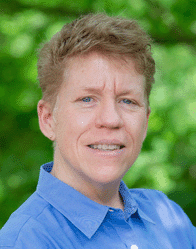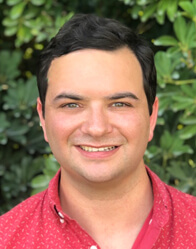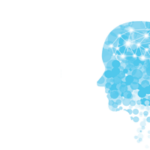Season 1 – Episode 44 – LGBTQIA+ Individuals in Higher Education
Despite the presence of over 250 LGBTQIA+ centers in US colleges and universities, there remains a lack of comprehensive data on LGBTQIA+ individuals in campus settings. A 2020 survey conducted by the Association of American Universities (AAU), encompassing over 180,000 undergraduate and graduate students, revealed that around 17% of students identified as gay, lesbian, bisexual, asexual, queer, or questioning. Although LGBTQIA+ individuals are gaining visibility on campuses, leaders in higher education still have room for improvement and further initiatives.
Episode Transcript
Click to expand/collapse
Darren Gaddis: From CITI Program, I’m Darren Gaddis, and this is On Campus. Today, LGBTQIA+ Individuals in Higher Education. I spoke with Kristin Renn, professor of Higher Adult and Lifelong Education at Michigan State University, where she also serves as Associate Dean of Undergraduate Studies for Student Success Research. As a reminder, this podcast is for educational purposes only. It is not intended to provide legal advice or guidance. You should consult with your organization’s attorneys if you have questions, or concerns about relevant laws and regulations discussed in this podcast. Additionally, the views expressed in this podcast are solely those of the guest, and do not represent the views of their employer.
Hi, Kristen, thank you for joining me today.
Kristen Renn: You’re welcome. It’s great to be here.
Darren Gaddis: For the purposes of today’s conversation, Kristen, and to help me ground this narrative, when we refer to the LGBTQIA+ community who is included in this community? And could you briefly explain that term for our listeners?
Kristen Renn: Sure. It’s a great question. So those of us who have been around for a minute doing this work have sort of seen things grow, and we’ve added more initials to what some people call the alphabet soup. So just what the individual words mean in that acronym: lesbian, gay, bisexual, transgender, queer, intersex and asexual are what I understand to be the sort of contemporary meanings of those words. And then, the plus refers to other identities that may not be included in that list, or other labels people might have for themselves. I do some surveys with college students and the terminology is almost always changing. So adding the plus gives us a way to sort of include other folks who might not use one of those specific words but who are in some way, I don’t like defining people by who they are not, but some way other than cisgender or heterosexual. So these are people who are in some way minoritized for their sexual orientation and/or their gender identity.
Darren Gaddis: And this sounds like something that might be more fluid on a spectrum and not static.
Kristen Renn: Absolutely. So within each of these terminologies, these are very fluid. There’s a great deal of evidence that our sexual orientation and our gender identities may develop and grow over the lifetime. Could be sort of across a long period of time fluid. It can also be somewhat situational. Sort of how people identify at a given time. So across individual identities, but also the community itself has been fairly fluid, and growing over time as well.
Darren Gaddis: Thinking about the impact that the LGBTQIA+ community has had, how have they contributed specifically to the landscape of higher education?
Kristen Renn: I love this question. And I was thinking about it. And so first, we know that LGBTQIA+ people exist in every sector of society, in every sector of the workforce. In some ways it’s just a very ordinary, like this is just people coming into higher ed and doing their jobs as contributions. And that is from students to presidents, to clerical and technical staff, and the people who help us keep our campuses clean, and the people who teach in our classrooms, and the people who run our labs. So it’s across every single possible category of work in higher education.
And then, I think that there’s a little bit of evidence that there may be some over representation, in fact, of potentially gay men among people who hold college degrees. So when we think about particularly the people in higher education who have degrees and higher degrees, there might be a slight over representation potentially of cisgender gay men. That came out of, I think the 2020 census, led to some studies that showed that a little bit.
But then, I think about what is the community contributing to the landscape of higher ed? I think about colleagues who do Black feminist thinking, and I’m thinking of Audrey Lorde, Patricia Hill Collins, and they’re writing about what they call the “outsiders within.” And as outsiders within, people who are in some way different from the majority, LGBTQIA+ people, I think, as outsiders within higher education have some affordances to sort of see some of the junctures that aren’t as clearly seen by heterosexual and cisgender people. So the things that are taken for granted maybe, those kinds of privileges or human rights that cisgender and heterosexual people may have we’ve had some really significant contributions to higher education, and research through people who, in various ways, would fall in the LGBTQIA+ category. Alan Hart, a transgender man who did the radiological work to really discover and treat tuberculosis, Alan Touring with computers. Astronaut Sally Ride. So there’s a lot of folks in those areas including historical figures that have added to, and were related to higher education.
So there’s a lot of specific kind of people have contributed, and then there’s a lot of this kind of outsider within sensibilities people may bring that I think really matters in how higher education has been shaped in the United States, but also other countries.
Darren Gaddis: Why is it important for us to understand the contributions that some of these LBGTQIA+ scholars, that you just mentioned, have made within the field of higher education, and have co-created some spaces within higher education, especially as there’s a historic amount of anti-LBGTQIA+ rhetoric across the country?
Kristen Renn: Yeah, I’ll take the first part first on why is it important to understand?
So I believe pretty strongly that we all benefit when we can bring our full human selves to the work we do, wherever that work is and, certainly, in higher education. So I think it’s important both to create environments where people can bring the fullness and richness of all of their parts of their identity. But it’s also important to see and benefit from the richness of other people’s full humanity. Certainly, one of the big lessons of the COVID pandemic has been that seeing one another in our humanity is good for us. I think that for one, it’s important to see the full richness of human diversity.
I think that I’m somebody who, as a professor, I teach in higher education, I think that’s important to create possibility and models for youth. I think that at a time when a lot of the messages they may be seeing in the press may be controversial. Or maybe, in some ways, designed to deny their existence, to be able to see LBGTQIA+ grownups, as it were, when I’m thinking about sort of younger age college students, for them to see successful, happy people living their lives, I think is a really valuable and important message for them to see.
Several years ago, there was a social media campaign called It Gets Better, which there’s been some critiques of. But the idea there was that for young people who may be feeling undervalued, or that nobody’s appreciated them, or they feel threatened because of their sexual orientation or gender identity, that idea that it does get better, and that you can live a full satisfying life. Some critique of that campaign, but also the idea that just by being here as a queer person on my campus, I send a message to people of younger generations, whether those are students or earlier career staff, other folks who work on campus that you can have a really whole happy life as a queer person. So that I think is important.
And then, I think that it’s important to sort of understand the importance of these contributions in part so that whether or not we’re part of this community, we can see ourselves as allies in creating more space for this community. Certainly there’s LBGTQIA+ people, there are people with LBGTQIA+ parents or family members. So, in so many ways, all of us perhaps are sort of part of this community by extension. So I think that’s another reason that it’s kind of important to understand what these contributions are.
Darren Gaddis: How can we ensure colleges and universities, and specifically the people who make up that space continue to provide a safe space and environment for LBGTQIA+ students, faculty, and staff members?
Kristen Renn: I hate to use the word unprecedented because I’m pretty sure it’s not. But, certainly, we are in the middle of an exceptionally visible moment when there are people who are mobilizing fear about transgender people in particular, but also about other folks, and mobilizing that politically for I think quite cynical reasons.
The result of that are literally hundreds nationwide of local and state bills and legislatures that will limit and restrict the rights of LBGTQIA people that will prevent what have been proven effective medical practices for transgender people, and particularly transgender youth. I think it is especially important that people pay attention to what’s going on, that they are keeping track of what’s going on in their local and their state legislatures. I think that that is something we could help do to create some safer spaces, just sort of knowing what’s happening. So I think that paying attention to what’s going on and paying attention to the elections. And we need to be involved and we need to show up, and kind of get engaged in those ways. So I think that that’s something we can do to help keep things safe.
But I think that being that ally, again, even when we don’t know somebody’s in the room. And I think that it’s also important to not be afraid to ask the question and to count. In higher education, we really lack data about how many LBGTQIA students, faculty, staff, employees we have among us. Typically, that’s not recorded anywhere. So thinking about how do we begin to literally count people and not that LBGTQ people matter only ’cause there are numbers of them, but we need to understand how we can, for example, understand student use of campus support services. Do we know anything about how LBGTQIA+ students are faring in terms of retention and persistence the way we do for other student groups?
So I think there’s a lot of ways we can help to create safe spaces on campus. And the contributions to that may really vary based on one’s position in the campus. Thinking about what small things, but also potentially larger policy, or other arenas individuals find themselves in that they could make some kind of a contribution. So, there’s a lot to be done, a lot of work, a lot of space there.
Darren Gaddis: What else should we know about the impact of LBGTQIA+ individuals within higher education?
Kristen Renn: So a lot of, and even some of my own comments have focused on struggle, resistance. And those are all important. I think it’s also important to remember that there’s a lot of queer joy in higher education. There are queer LBGTQIA people thriving in ordinary and extraordinary ways, making contributions large and small. And many of these will never be noticed put in same as LBGTQ scholars, or staff, or student web page kind of idea. But the everyday joys are actually quite like other people’s. And I think that it is, without being Pollyanna, I think it is also important to remember that even with the struggle and the strife, there’s a lot of queer joy that brings value to our campuses, and make them better places to be.
Darren Gaddis: Kristen, thank you for joining me today.
Kristen Renn: You’re welcome. Thanks for having me.
Darren Gaddis: Be sure to follow, like, and subscribe to On Campus with CITI Program to stay in the know. If you enjoyed this podcast, you may also be interested in other podcasts from CITI Program, including On Research and On Tech Ethics. You can listen to all of our podcasts on Apple Podcasts, Spotify, and other streaming services. I’d also invite you to review our content offerings regularly, as we are continually adding new courses, subscriptions, and webinars that may be of interest to you, like CITI Program’s Clery Act Course.
How to Listen and Subscribe to the Podcast
You can find On Campus with CITI Program available from several of the most popular podcast services. Subscribe on your favorite platform to receive updates when episodes are newly released. You can also subscribe to this podcast, by pasting “https://feeds.buzzsprout.com/1896915.rss” into your your podcast apps.
Recent Episodes
- Episode 43: Student Housing, Resource, and Partnerships
- Episode 42: Housing Options for Students Today
- Episode 41: Community Colleges and Baccalaureate Programs
- Episode 40: AI in Higher Education
Meet the Guest

Kristen Renn is Professor of Higher, Adult, & Lifelong Education at Michigan State. She has for the last 25 years focused her research on the identities, experiences, and development of minoritized students in higher education, including LGBTQIA+ students and mixed race students.
Meet the Host
Darren Gaddis, Host, On Campus Podcast – CITI Program
He is the host of the CITI Program’s higher education podcast. Mr. Gaddis received his BA from University of North Florida, MA from The George Washington University, and is currently a doctoral student at Florida State University.









